Comprehensive Guide to Interior Design Ideas
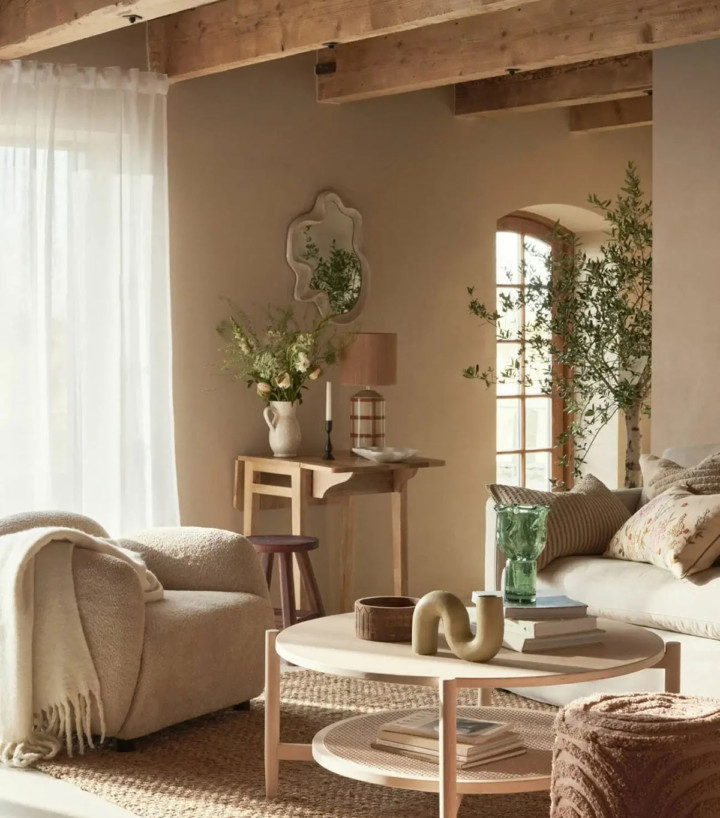
Interior design is a creative process that involves the artful arrangement and decoration of spaces to create visually appealing and functional environments. From selecting the perfect paint colors to adding unique decorative elements, there are endless possibilities for transforming your home. In this comprehensive guide, we will explore the most pertinent facts and details on interior design ideas, drawing inspiration from various sources to provide you with a complete and distinct resource.
Image: Summer Home Collection 2023 by Ellos
1. Selecting the Perfect Paint Colors
a. Importance of Light Conditions
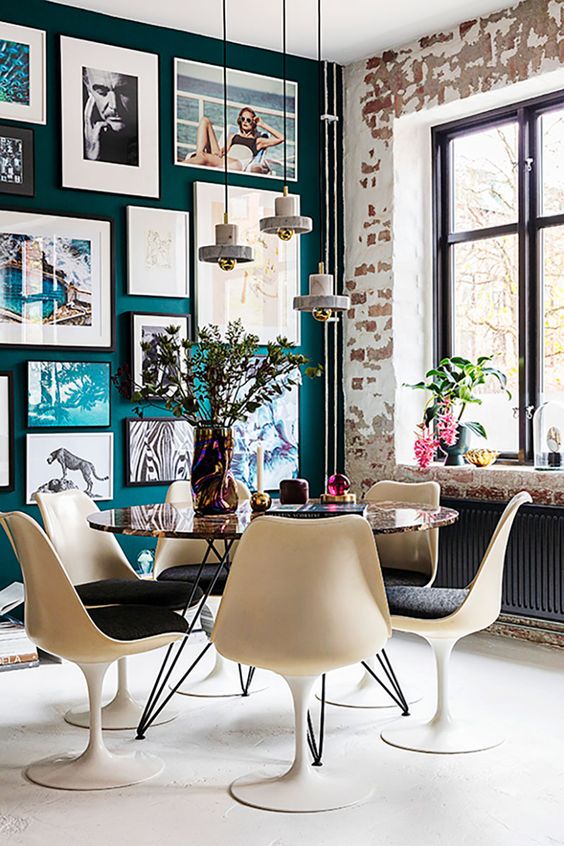
Paint colors are notorious for appearing different hues in different light conditions, which can make it challenging to choose the perfect shade for your space. To ensure that you make an informed decision, avoid committing to a paint color based on a small sample chip in a store. Instead, look at the largest chip you can get and observe it in the room you plan to paint, paying attention to how it appears at different times of day.
b. Testing Bold, Saturated Colors
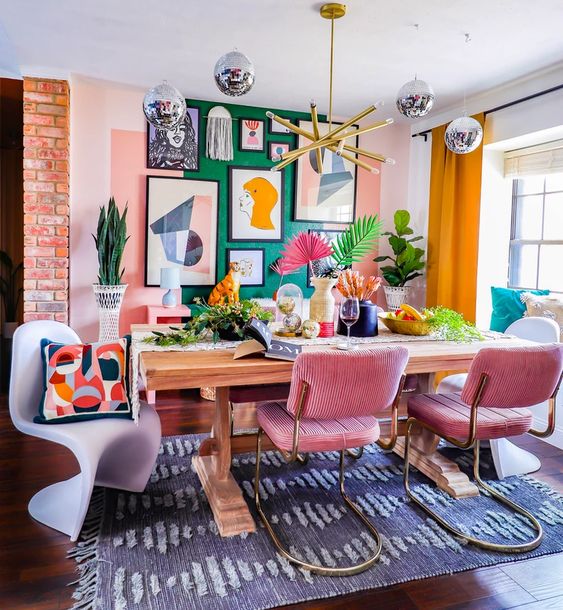
Image: ABNH
Don’t be afraid to experiment with bold, saturated colors in your interior design. By testing the color before painting the entire room, you can create a dramatic and striking effect that adds depth and character to your space.
c. Choosing the Right Sheen
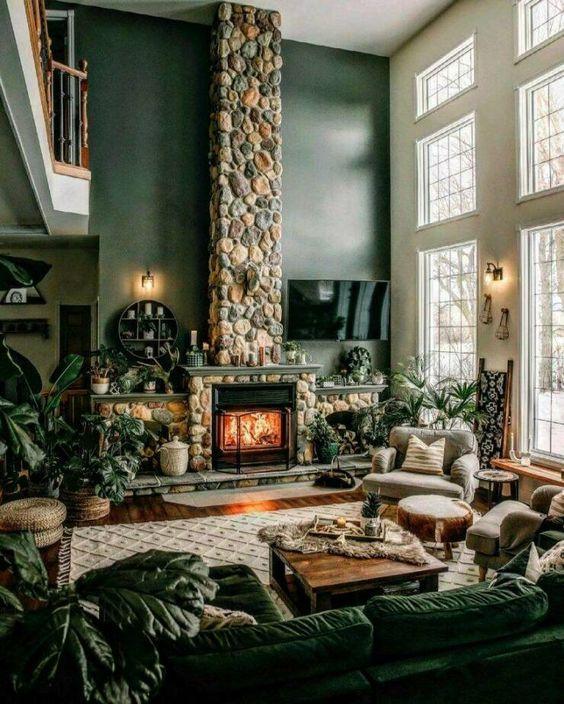
Once you’ve selected your paint color, it’s essential to choose the right sheen. Matte or flat paints offer a soft, gauzy appearance that hides wall imperfections but can be difficult to maintain and clean. Eggshell or satin finishes are slightly glossier and easier to scrub, making them a more practical choice for most applications.
d. Painting Baseboards, Moldings, and Trim
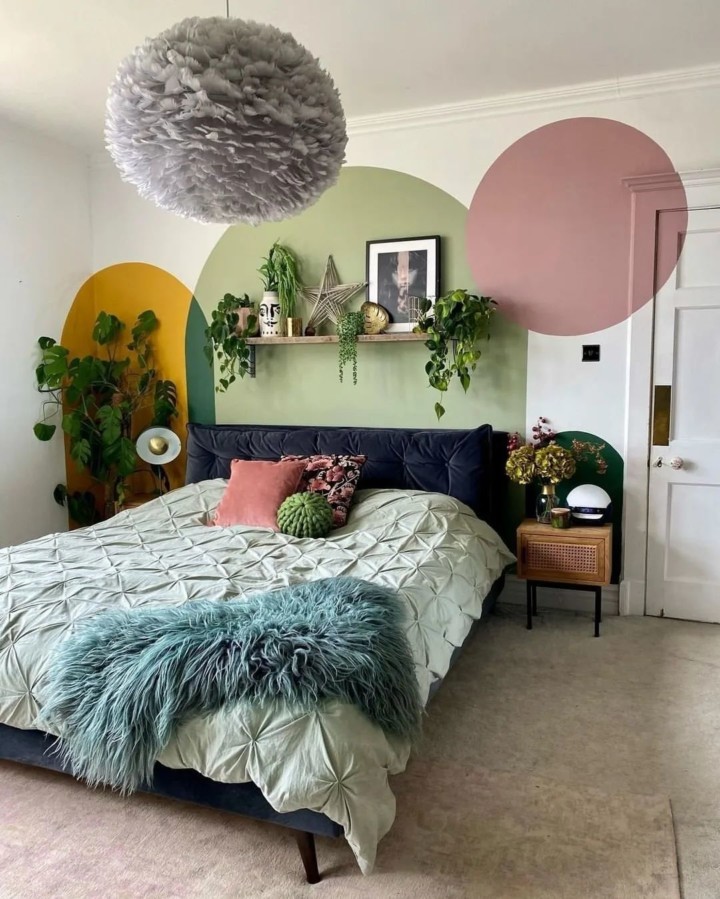
Image: Katie Woods
Baseboards, moldings, doors, and other trim elements can be painted the same color as the room to make them visually recede, or a contrasting color to make them more of a feature. Using a semi-gloss sheen on these elements adds durability and draws attention to their architectural details.
e. Treating the Ceiling
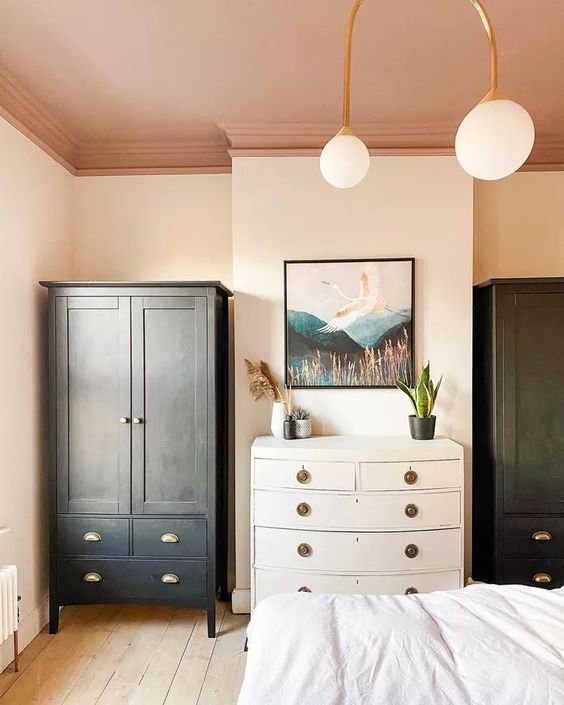
Image: NEGI AT HOME
The ceiling is another important aspect to consider in your interior design. You can paint it white for a crisp, clean feel, or a slightly darker shade of the same color as the walls for a cocooning effect. Matte or flat sheens are typically best for ceilings, as they rarely come into contact with dirty fingers or smudge-causing objects.
2. Incorporating Decorative Elements
a. Adding Flowers and Greenery
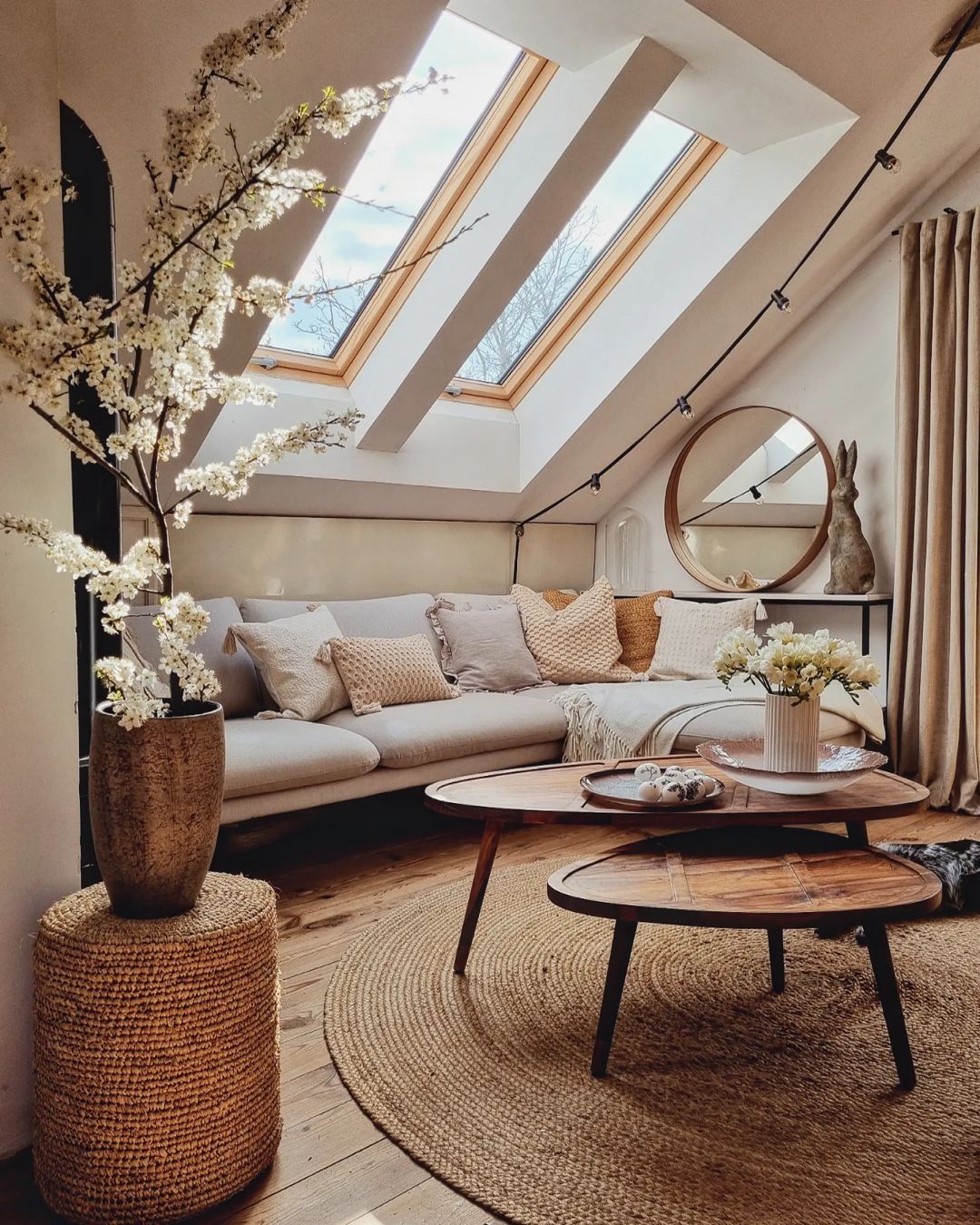
Image: Marzena Marideko
Introduce fresh blooms throughout your home to add a touch of natural beauty and create a more welcoming atmosphere. Display flowers in unique vases or containers that complement your overall design scheme.
b. Swapping Out Artwork
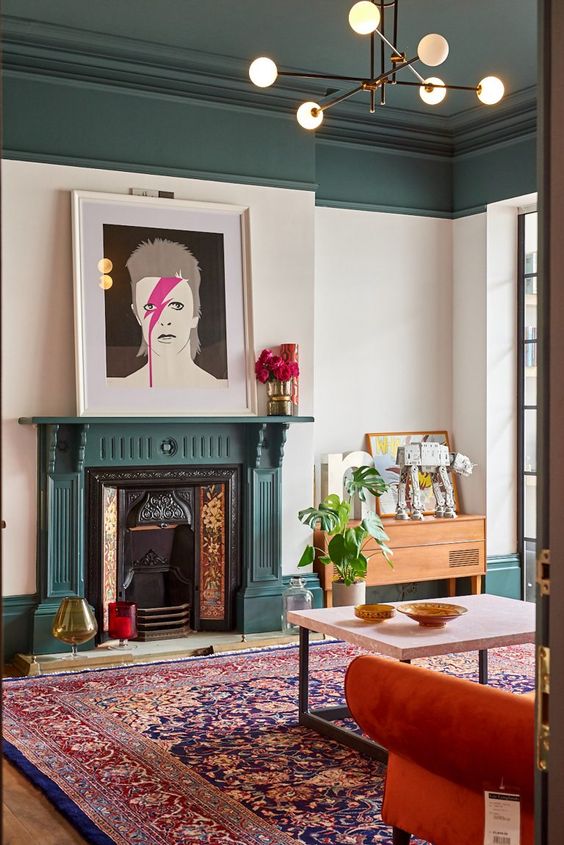
Image: SHOOTFACTORY
Refresh your space by rotating the artwork on your walls. Experiment with different pieces, including prints, paintings, and photographs, to keep your interior design feeling fresh and engaging.
c. Incorporating Mirrors
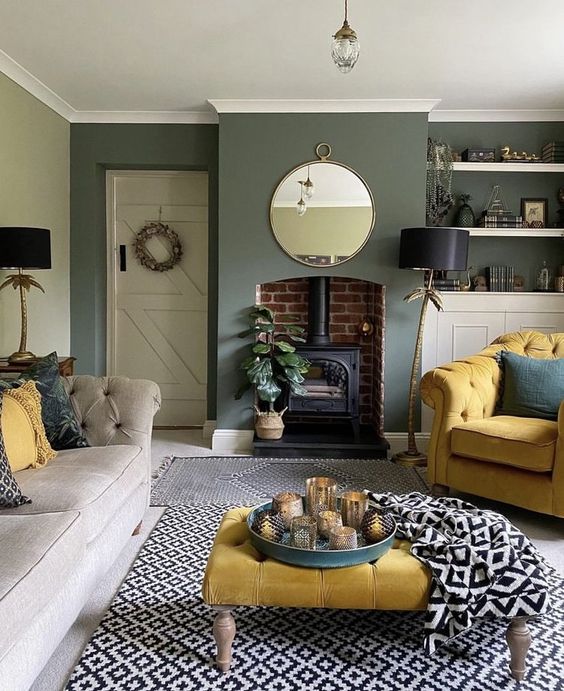
Image: THE LIVING HOUSE
Mirrors can be a powerful design element, making a room feel larger and brighter. Place a large mirror above your mantel or on an empty wall space to create a stunning focal point.
d. Updating Coffee Table Books
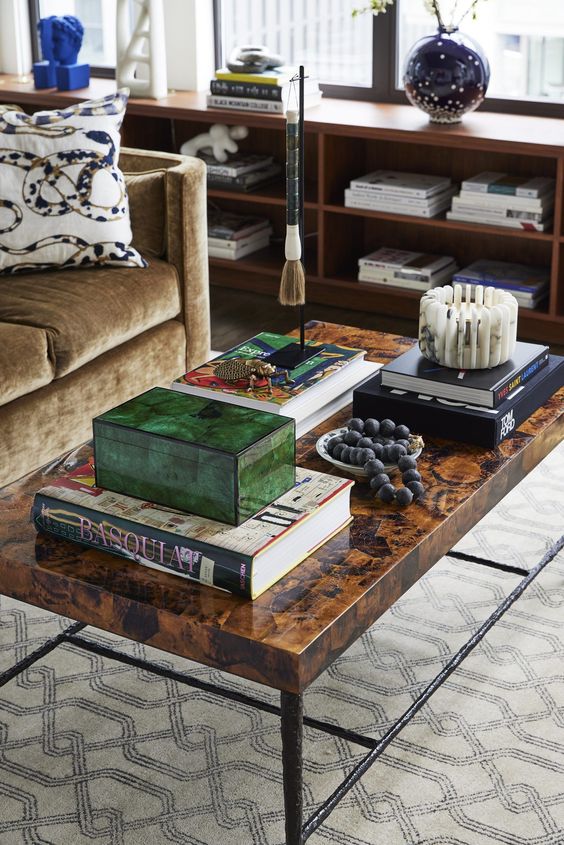
Image: PULP design studios
Coffee table books can be both decorative and informative, adding visual interest to your living room or sitting area. Keep your collection up to date by introducing new titles or rearranging your existing stacks for a fresh look.
3. Exploring Alternative Wall Treatments
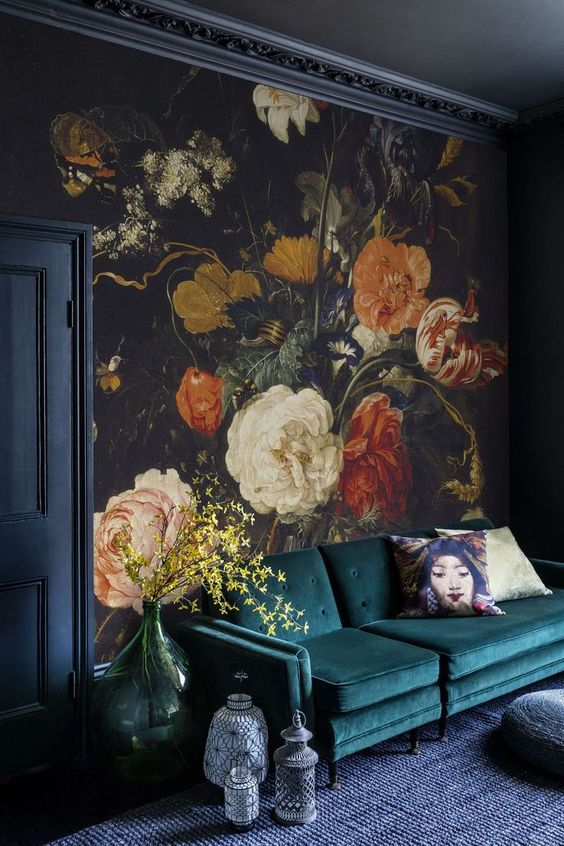
In addition to paint, there are numerous alternative wall treatments to consider for your interior design. Some options include patterned wallpaper, grass cloth, upholstery fabrics, wood paneling, and even stone or brick veneer.
The Best Wall Treatments For Your Home
4. Styling and Organizing Your Space
a. Creating a Cozy Reading Nook
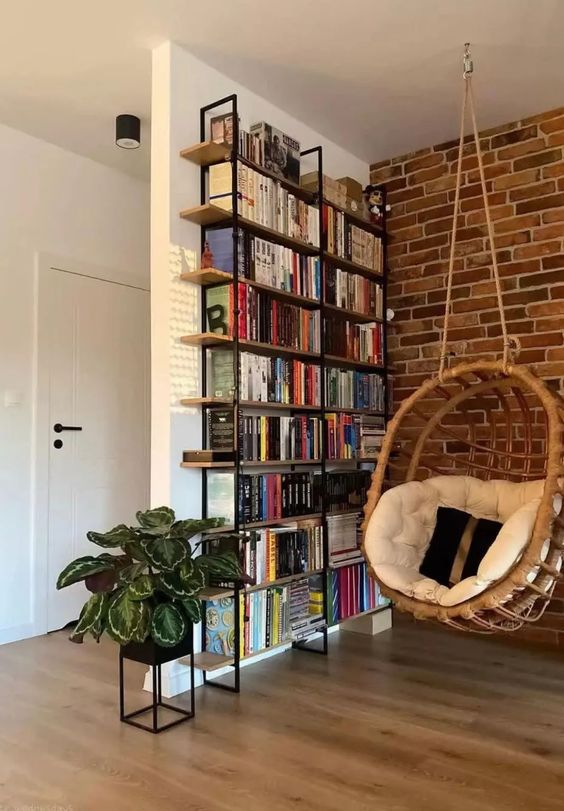
Image: i.hate.wednesdays
Designate a corner or small area of your home as a cozy reading nook, complete with comfortable seating, soft lighting, and a collection of your favorite books. This can serve as a relaxing retreat where you can unwind and enjoy some quiet time.
b. Setting Up a Breakfast Nook
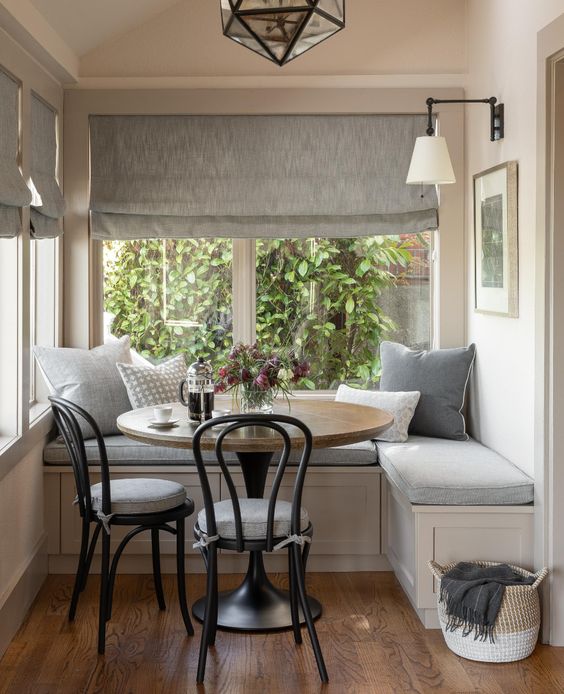
Image: August Taylor Designs
A breakfast nook is a charming addition to any kitchen or dining area. Create a welcoming space for enjoying your morning coffee or sharing a casual meal with family and friends. Look for furniture and décor that reflects your personal style and complements the overall design of your home.
c. Organizing Your Home Office
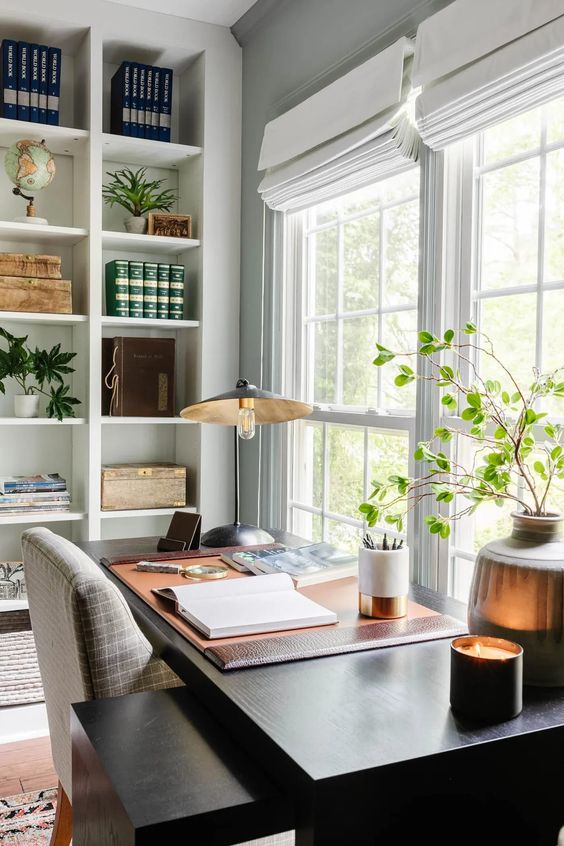
A well-organized home office is essential for maintaining productivity and focus. Invest in functional storage solutions, such as shelves, file cabinets, and desk organizers, to keep your workspace clutter-free and your important documents easily accessible.
5. Experimenting with Different Design Styles
a. Classic Eclectic
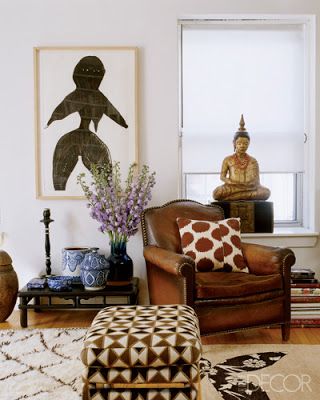
The classic eclectic design style combines traditional elements with unexpected and unconventional accents. This approach allows you to express your unique personality while still maintaining a sense of cohesion and balance in your space.
b. Coastal Chic
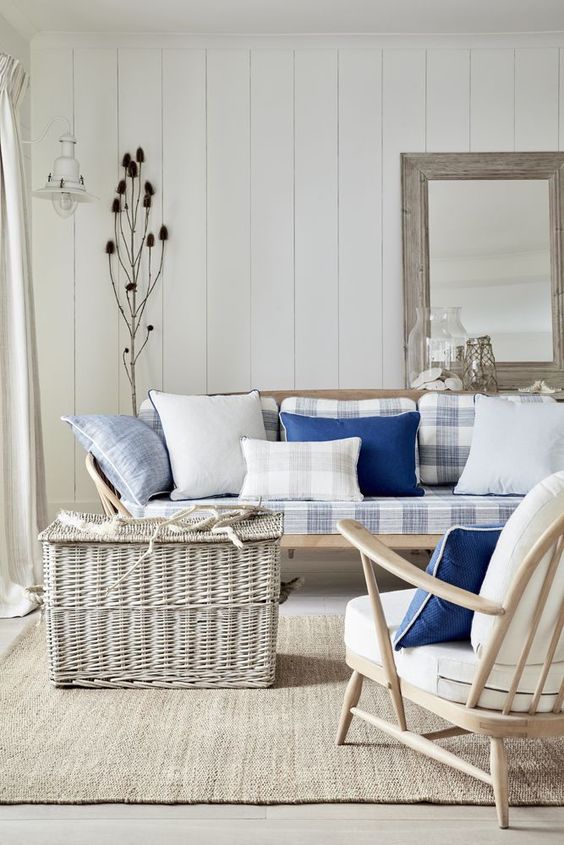
Bring the relaxed, laid-back vibe of the coast into your home with a coastal chic design scheme. Incorporate natural materials, such as rattan, jute, and seagrass, along with cool, calming color palettes and nautical-inspired décor.
c. Modern Glam
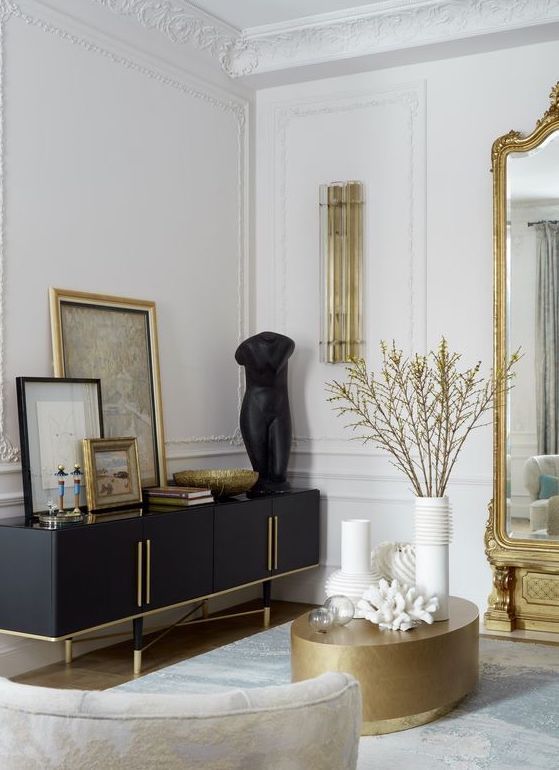
For a more glamorous and sophisticated look, consider a modern glam design style. This approach incorporates luxurious materials, such as velvet, silk, and metallic accents, along with bold patterns and dramatic color schemes.
d. Farmhouse Rustic
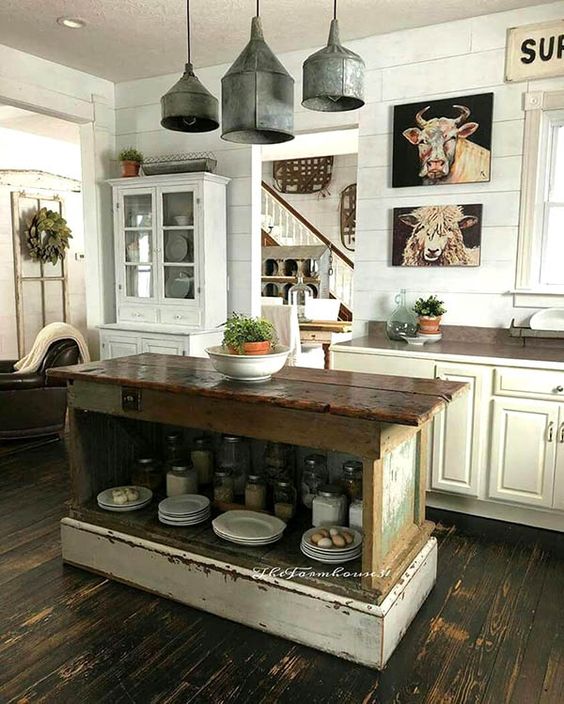
Create a warm and inviting atmosphere in your home with a farmhouse rustic design scheme. This style emphasizes natural, rugged materials, such as reclaimed wood and stone, along with vintage-inspired furnishings and accessories.
Farmhouse Bathroom Ideas for the Home
22 Dream Farmhouse Bedroom Ideas
Farmhouse Must Have: Chicken Wire Cabinet Doors
Inside Ashton Kutcher and Mila Kunis’s Awesome L.A. Farmhouse
6. Customizing Your Kitchen Design
a. Incorporating Reclaimed Wood
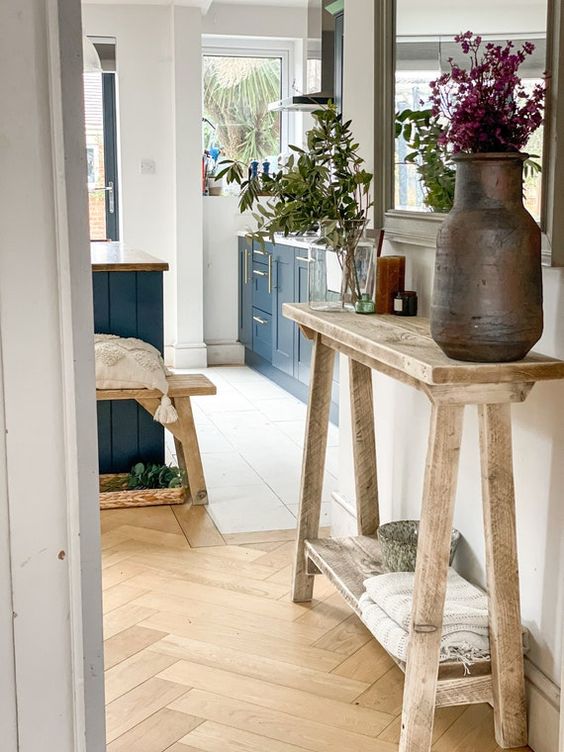
Image: Etsy
Incorporate reclaimed wood into your kitchen design to add warmth and character. Use it for cabinet doors, island bases, or even as a unique ceiling treatment for a truly one-of-a-kind look.
b. Selecting the Right Countertop Material
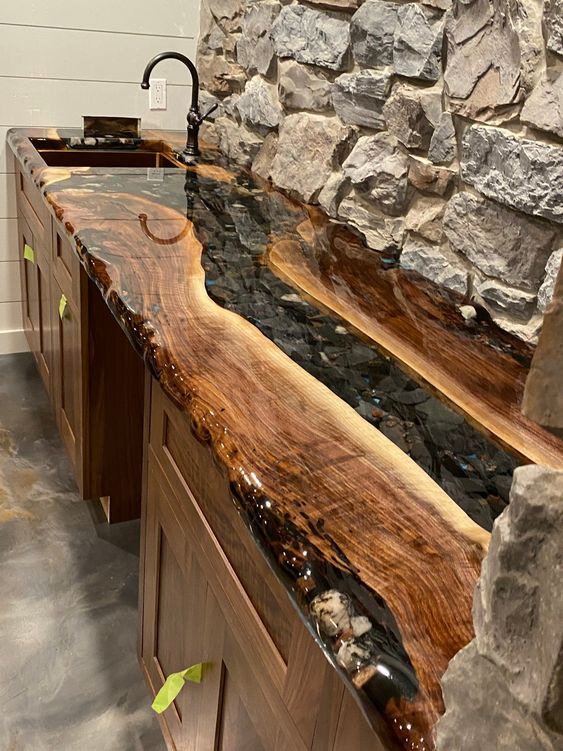
Image: Resin River Countertop Custom Countertop
Choose a countertop material that complements your overall design scheme and meets your functional needs. Carrara marble is an elegant and timeless option for a classic or transitional kitchen, while concrete or stainless steel may be more suitable for a modern or industrial-inspired space.
The Pros and Cons of Quartz Countertops: Everything You Need to Know
Natural Stone Countertops: Pros and Cons
Everything You Need To Know About Stainless Steel Kitchen Countertops
Everything You Need to Know About White Quartz Countertops
10 Best Gray Kitchen Countertops
c. Designing a Custom Hood
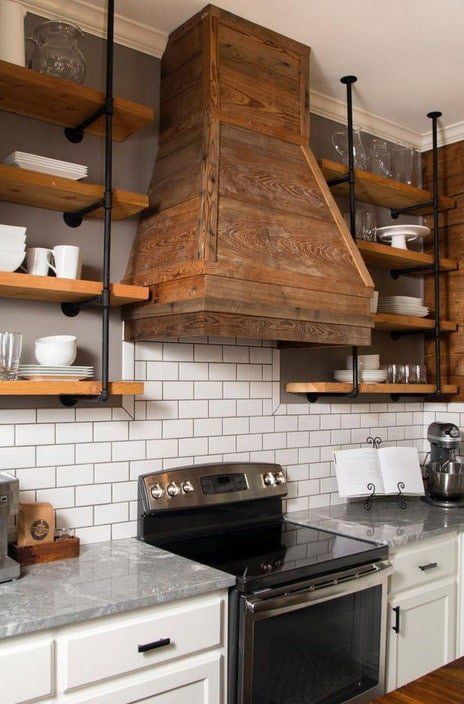
A custom hood can serve as a stunning focal point in your kitchen. Opt for a design that features architectural millwork or an interesting combination of materials to create a truly unique and eye-catching element.
7. Curating Your Living Room Design
a. Mixing and Matching Furniture Styles
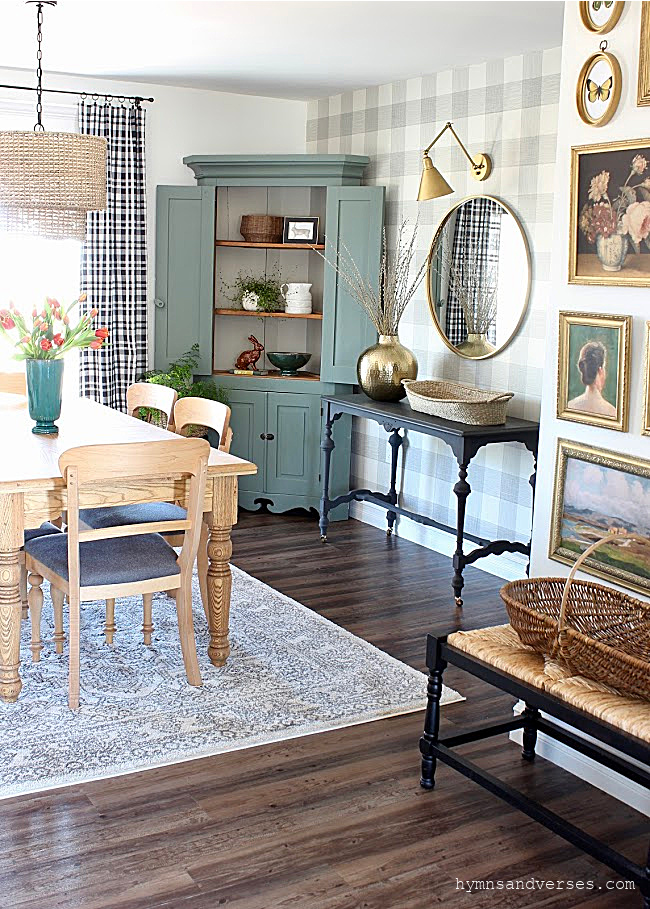
Image: HYMNES AND VERSES
Don’t be afraid to mix and match furniture styles in your living room. Combining pieces with different finishes, materials, and design details can create a more dynamic and visually interesting space.
b. Incorporating Textiles and Soft Furnishings
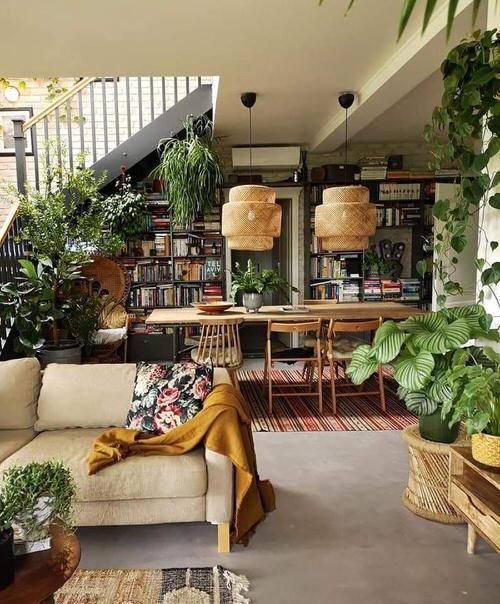
Add warmth and texture to your living room by incorporating a variety of textiles and soft furnishings. Layer rugs, throw blankets, and decorative pillows in different colors, patterns, and textures to create a cozy and inviting atmosphere.
c. Displaying Your Personal Collections
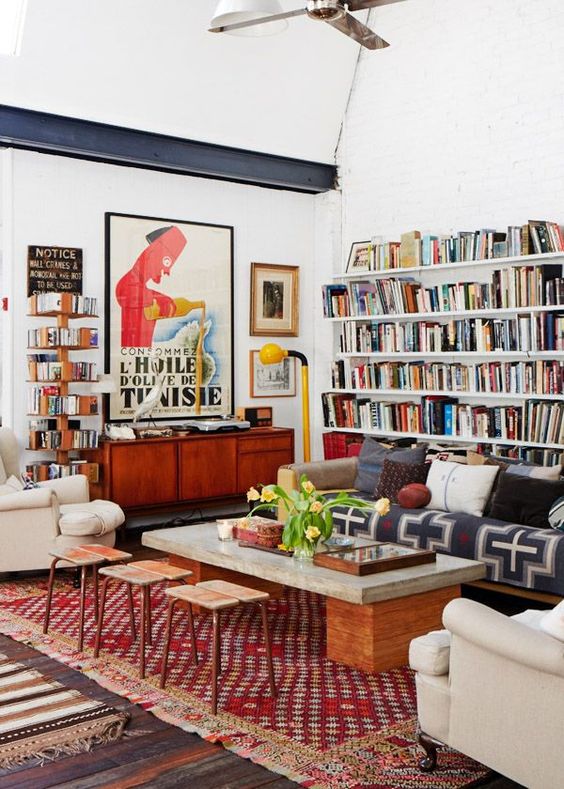
Showcase your personal collections and favorite items in your living room to add a touch of personality and make the space feel uniquely yours. Arrange artwork, decorative objects, and cherished mementos on shelves, side tables, or even your mantel.
8. Enhancing Your Bedroom Design
a. Experimenting with Bedding and Textiles
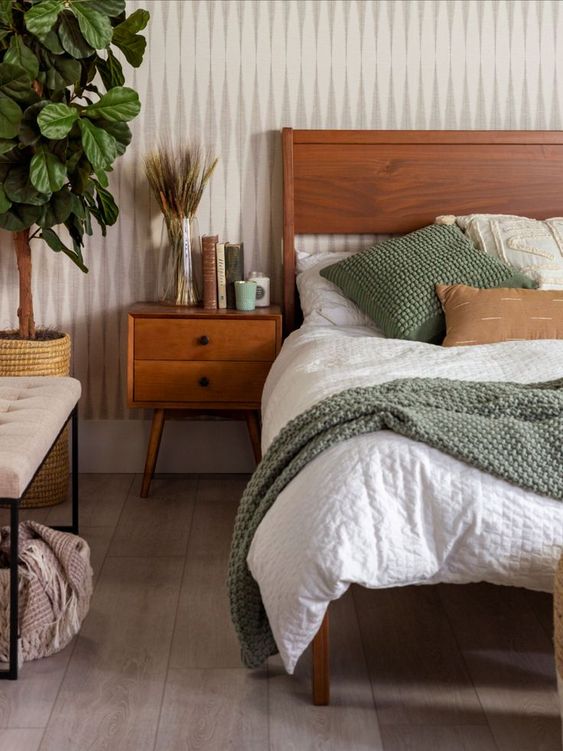
Image: Country Living
Transform your bedroom into a soothing sanctuary by selecting bedding and textiles that reflect your personal style and create a comfortable and inviting environment. Opt for luxurious fabrics, such as Egyptian cotton, linen, or silk, and experiment with different patterns and color schemes.
b. Adding a Canopy
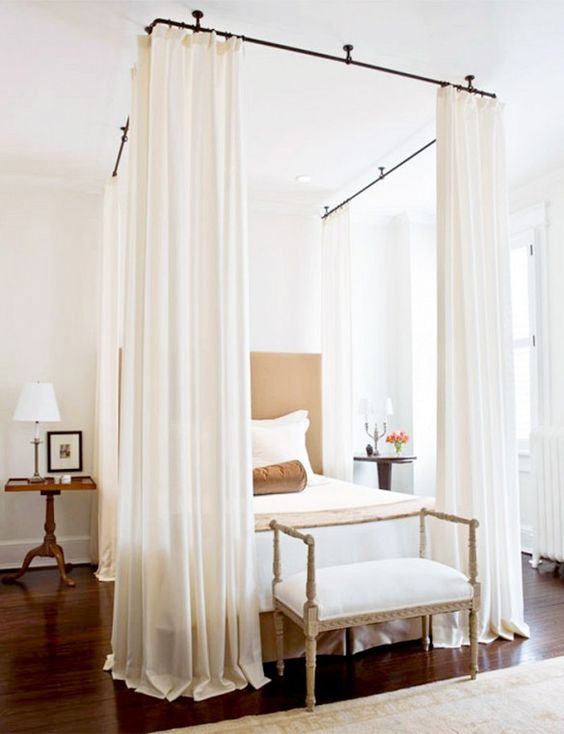
A canopy can instantly elevate the look of your bedroom, creating a romantic and sophisticated atmosphere. Choose a fabric that complements your overall design scheme, such as a light and airy gauze for a minimalist space or a rich velvet for a more opulent look.
c. Incorporating Seating and Storage Solutions
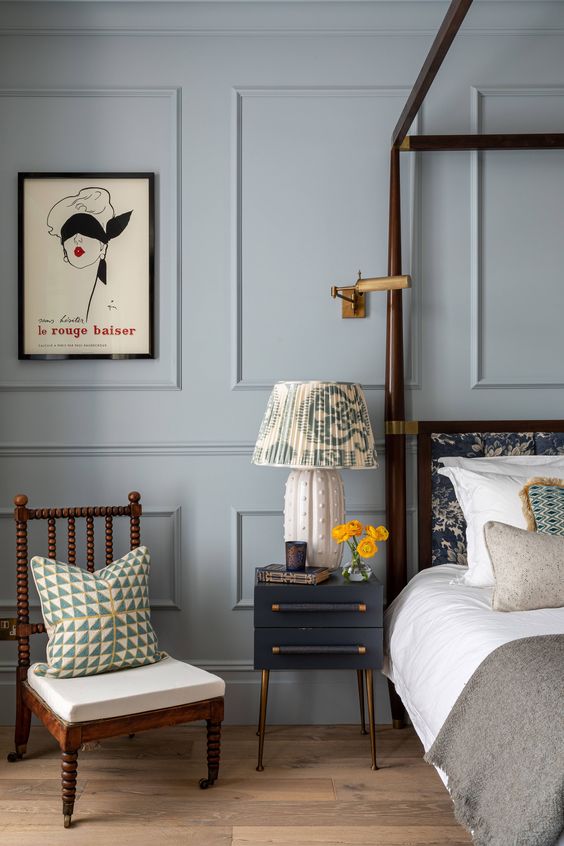
Image: House & Garden
Incorporate seating and storage solutions into your bedroom design to create a more functional and organized space. Consider adding a cozy reading chair, a stylish bench at the foot of the bed, or a multifunctional storage ottoman.
9. Designing Your Bathroom Retreat
a. Introducing a Freestanding Bathtub
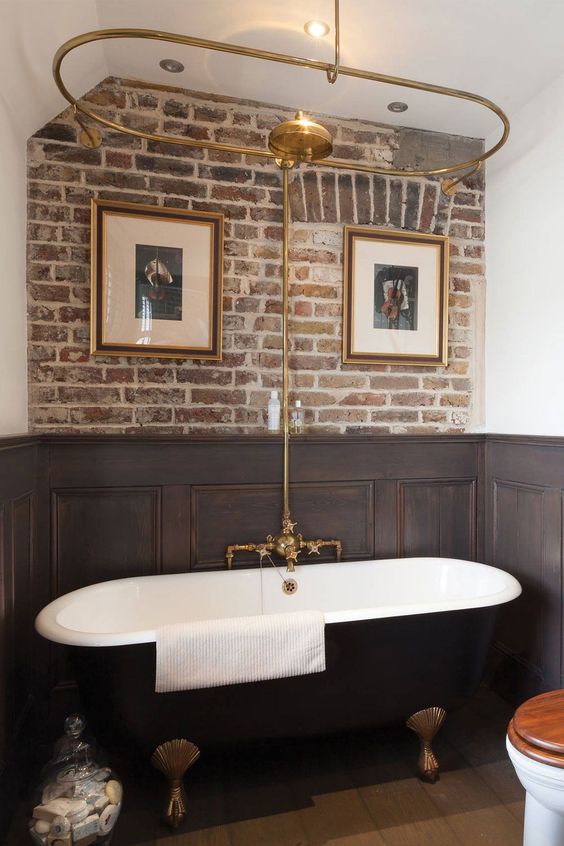
Image: Domus Nova
A freestanding bathtub can serve as a stunning focal point in your bathroom design. Choose a style that complements your overall aesthetic, whether it be a modern, minimalist tub or a vintage-inspired clawfoot option.
The best Freestanding Copper Bathtub Ideas
b. Selecting Stylish Storage Solutions
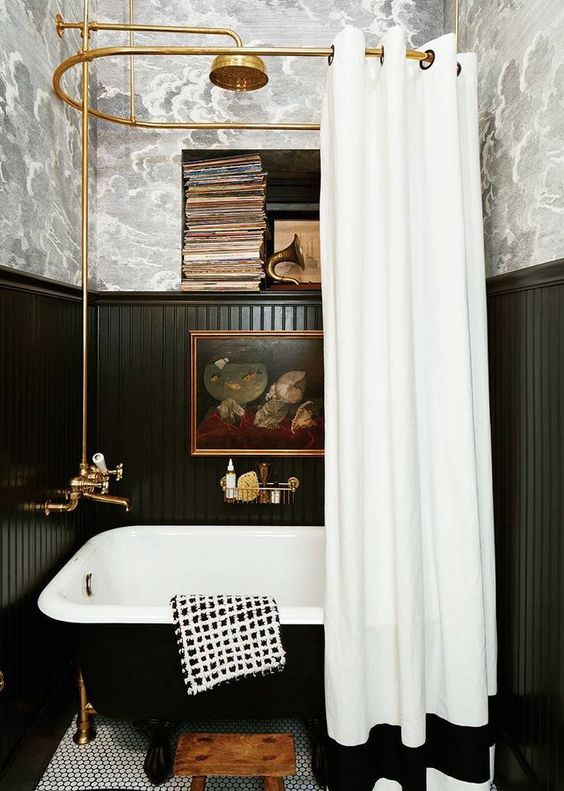
Keep your bathroom clutter-free and organized with stylish storage solutions. Opt for wall-mounted cabinets, open shelving, or even a chic etagere to display your toiletries and decorative items.
Unlock the Magic of Over the Toilet Shelves: Creative Storage Solutions
7 Innovative Bathroom Ideas to Transform Your Home
Maximizing Space with Recessed Shelves in Your Bathroom
c. Incorporating Art and Décor
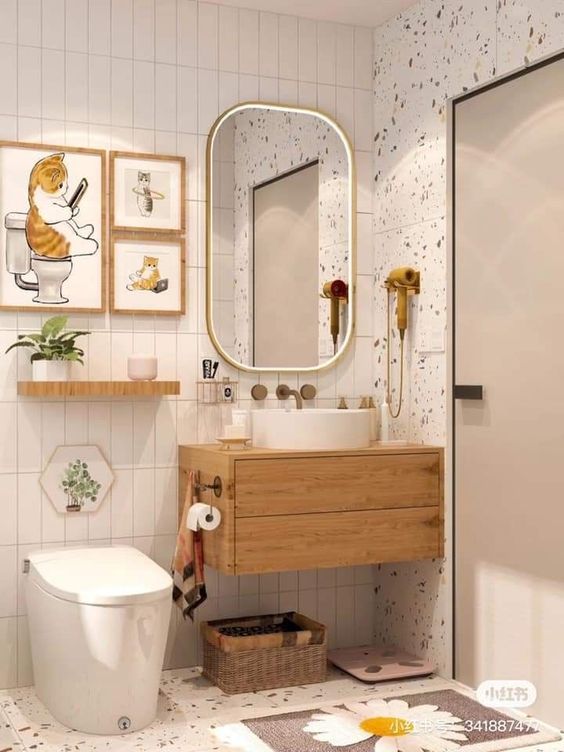
Don’t overlook the importance of art and décor in your bathroom design. Hang framed prints or artwork on the walls, add a unique mirror or light fixture, or introduce decorative accents, such as candles, vases, or plants, to create a more inviting and personalized space.
10. Paying Attention to Detail
a. Personalizing Your Space
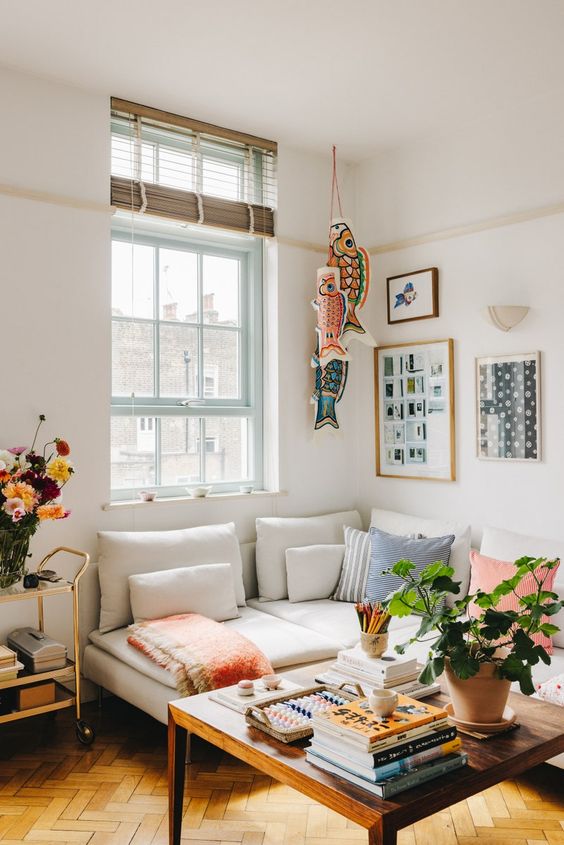
Image: H&G
Take the time to personalize your living spaces with unique décor and accessories that reflect your personality and style. From artwork and textiles to lighting and furniture, every element should feel carefully curated and thoughtfully chosen.
b. Balancing Function and Aesthetics
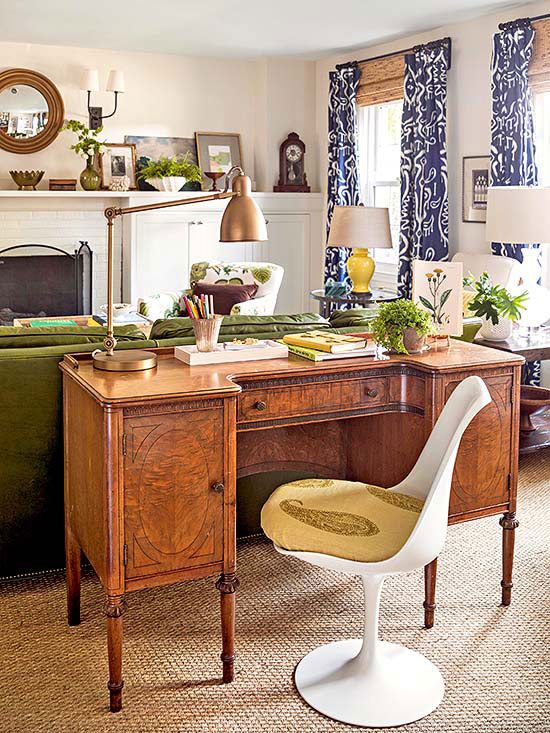
Image: BHG
In any interior design project, it’s essential to strike a balance between function and aesthetics. Ensure that your space is not only visually appealing but also practical and comfortable for everyday living.
c. Staying Open to Change
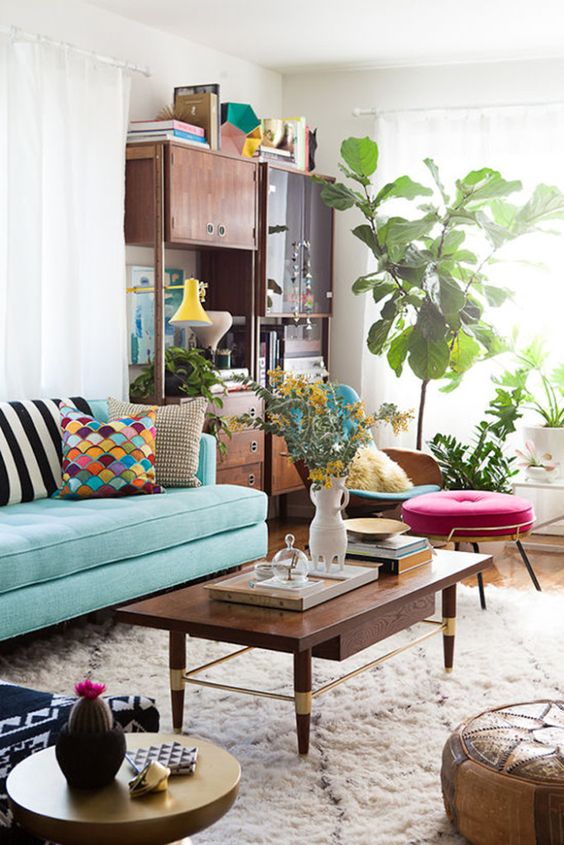
Image: Bri Emery’s Living Room
As your tastes and needs evolve over time, be open to making adjustments and updates to your interior design. Embrace the opportunity to experiment with new colors, materials, and styles, and don’t be afraid to take risks and push the boundaries of your personal style.
Conclusion
In conclusion, creating the perfect interior design for your home involves carefully considering various elements, such as paint colors, decorative accents, and overall design styles. By drawing inspiration from a range of sources and incorporating your personal preferences, you can create a beautiful and functional space that truly reflects your unique personality and style.
The post Comprehensive Guide to Interior Design Ideas appeared first on Decoholic.
